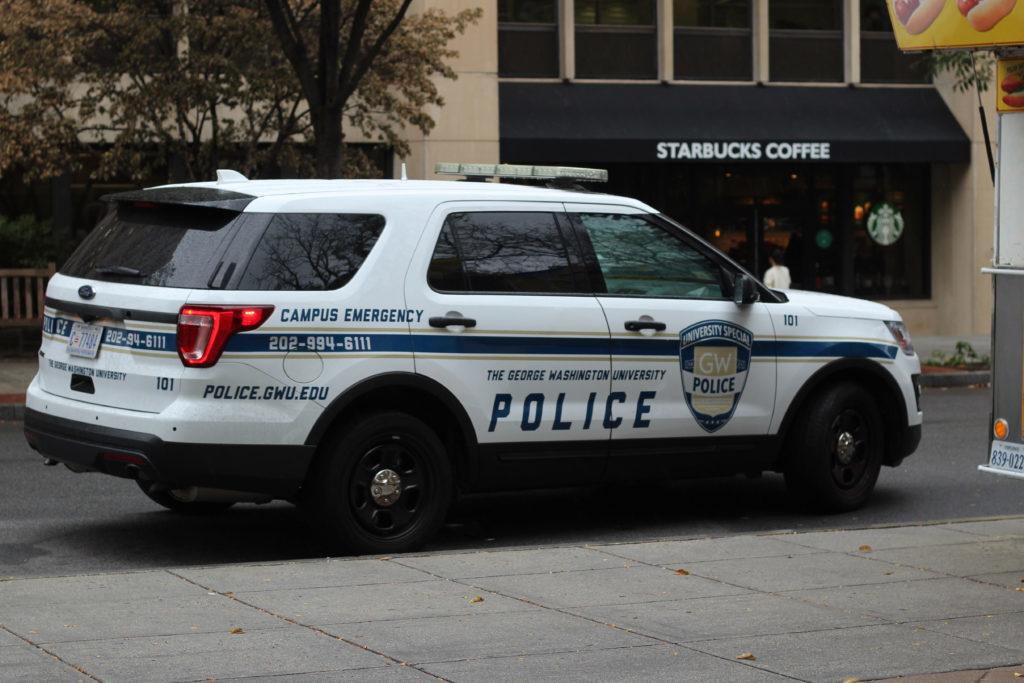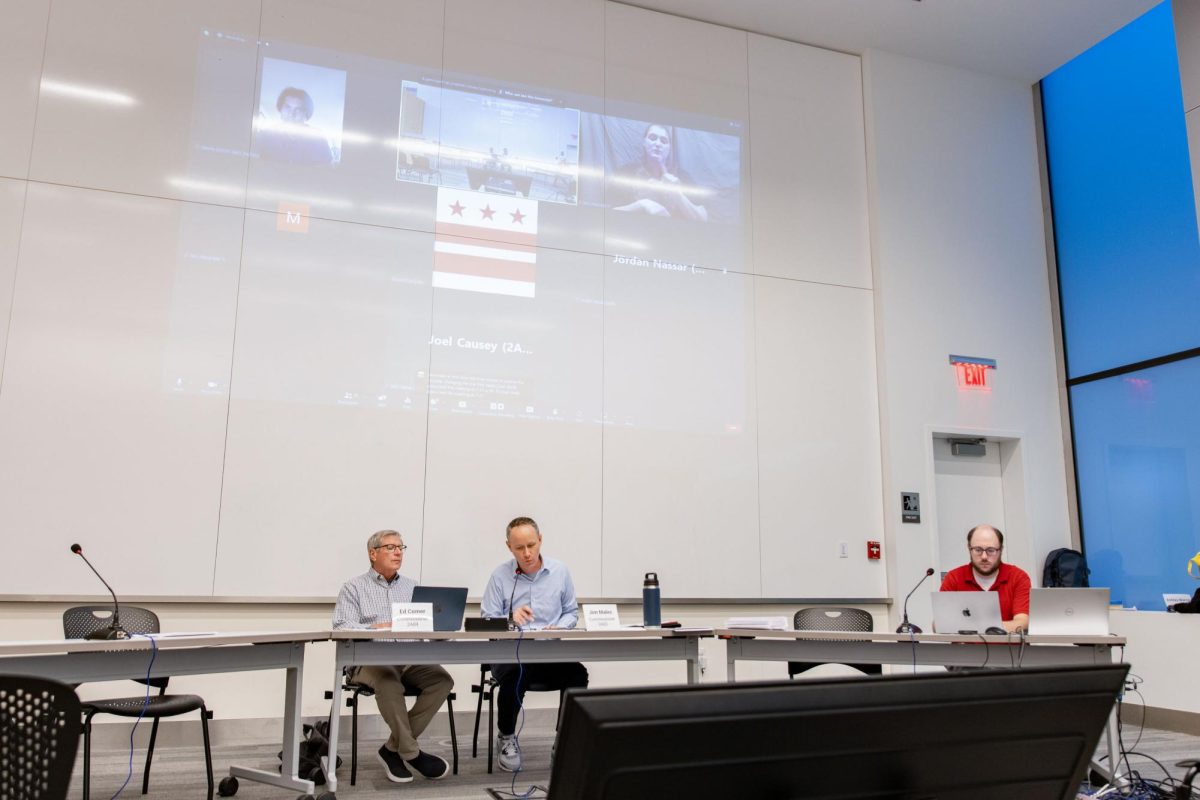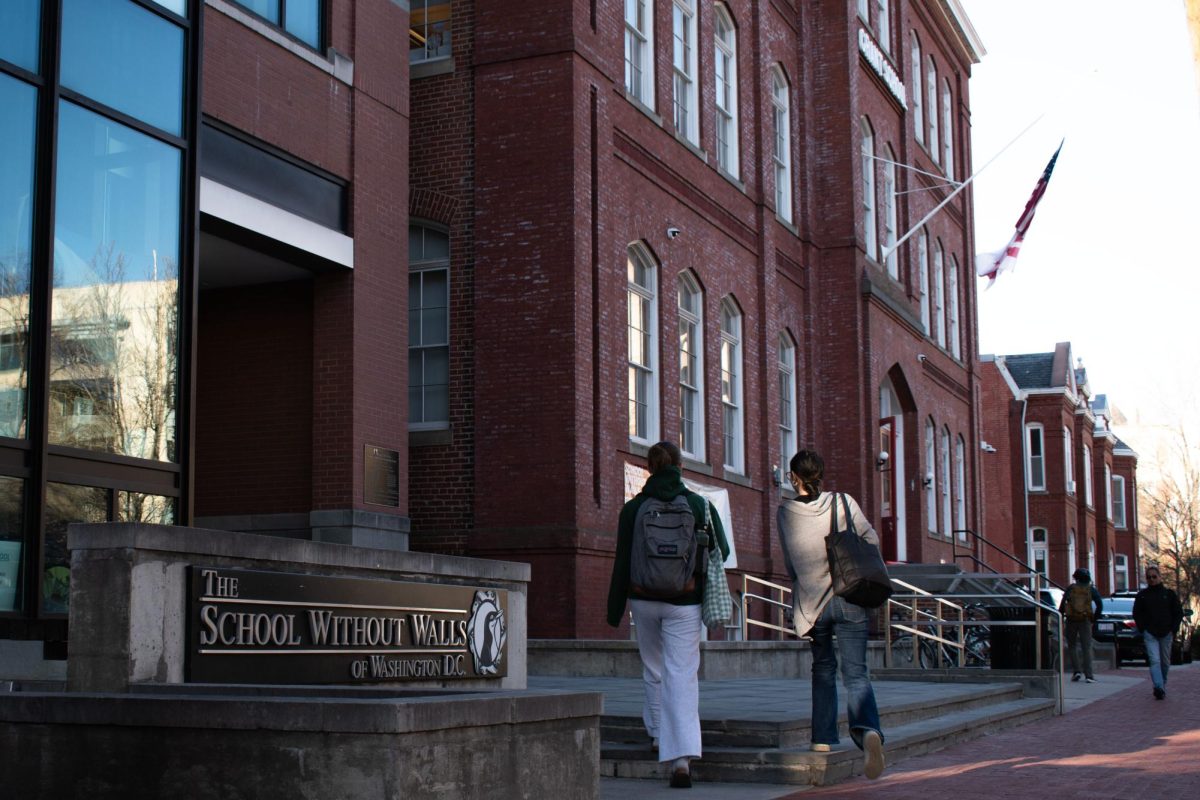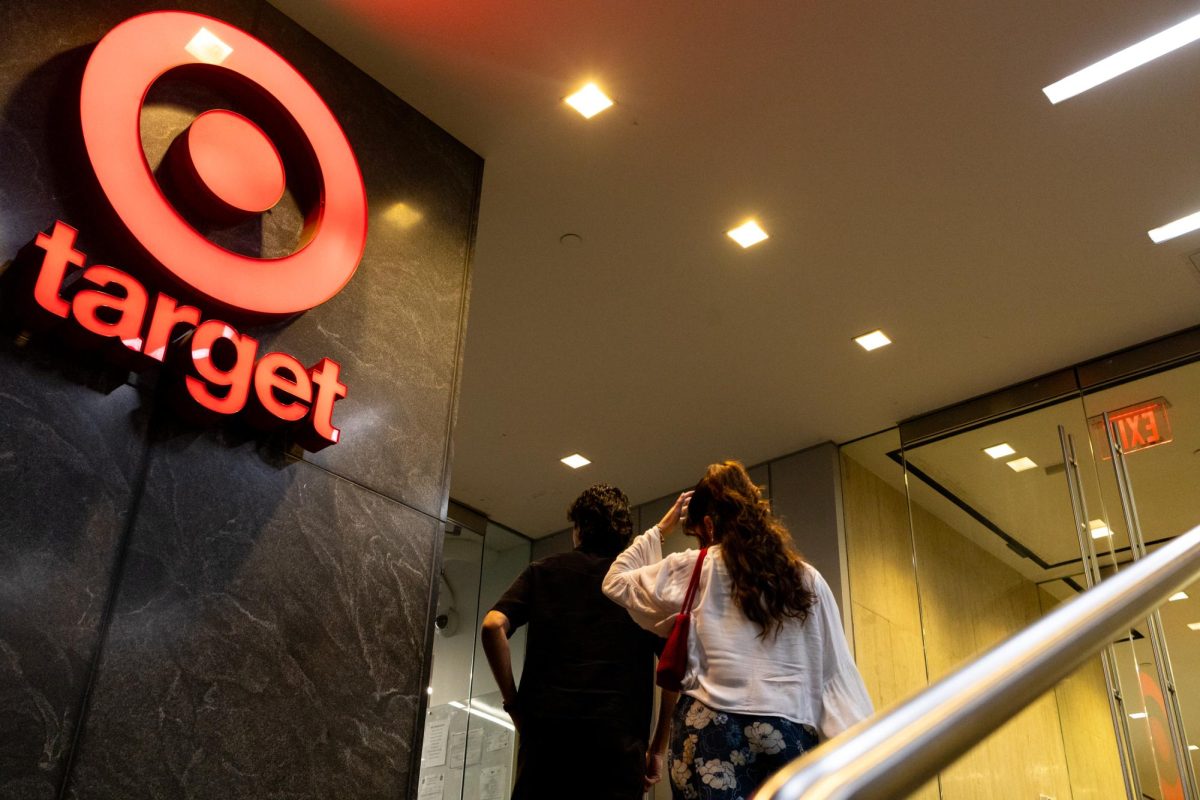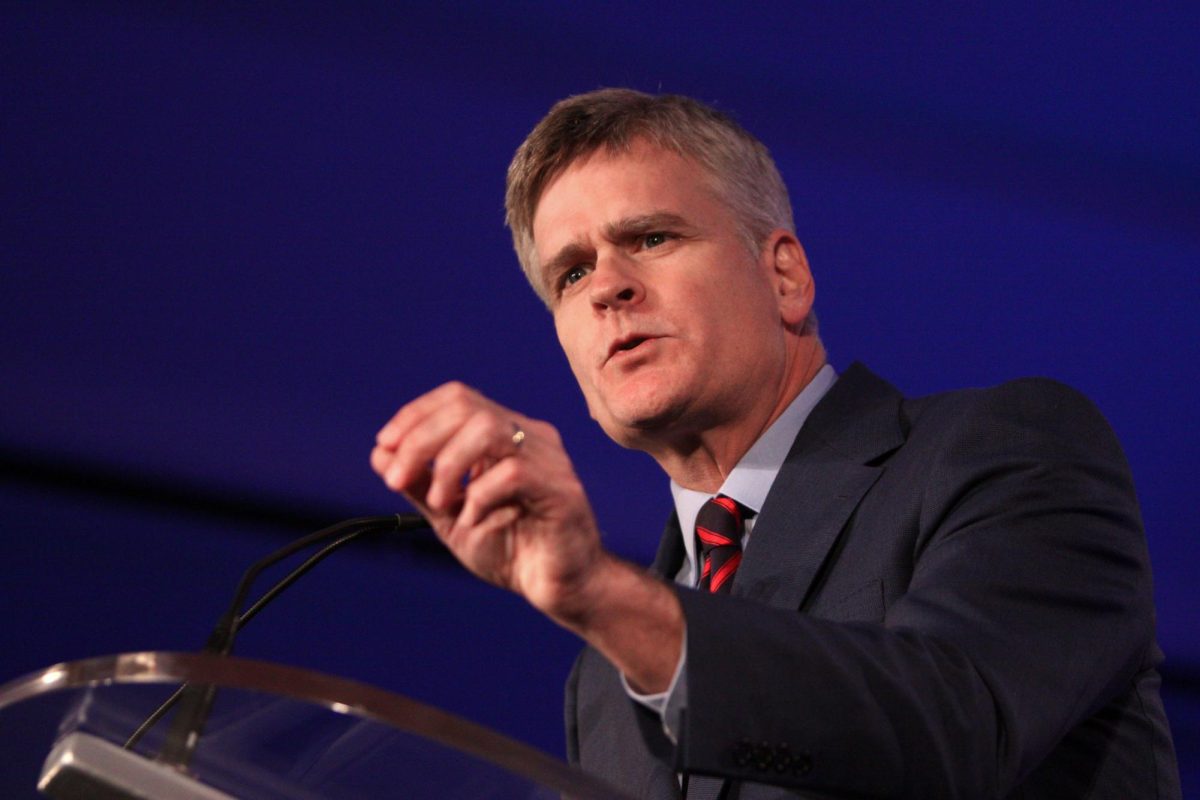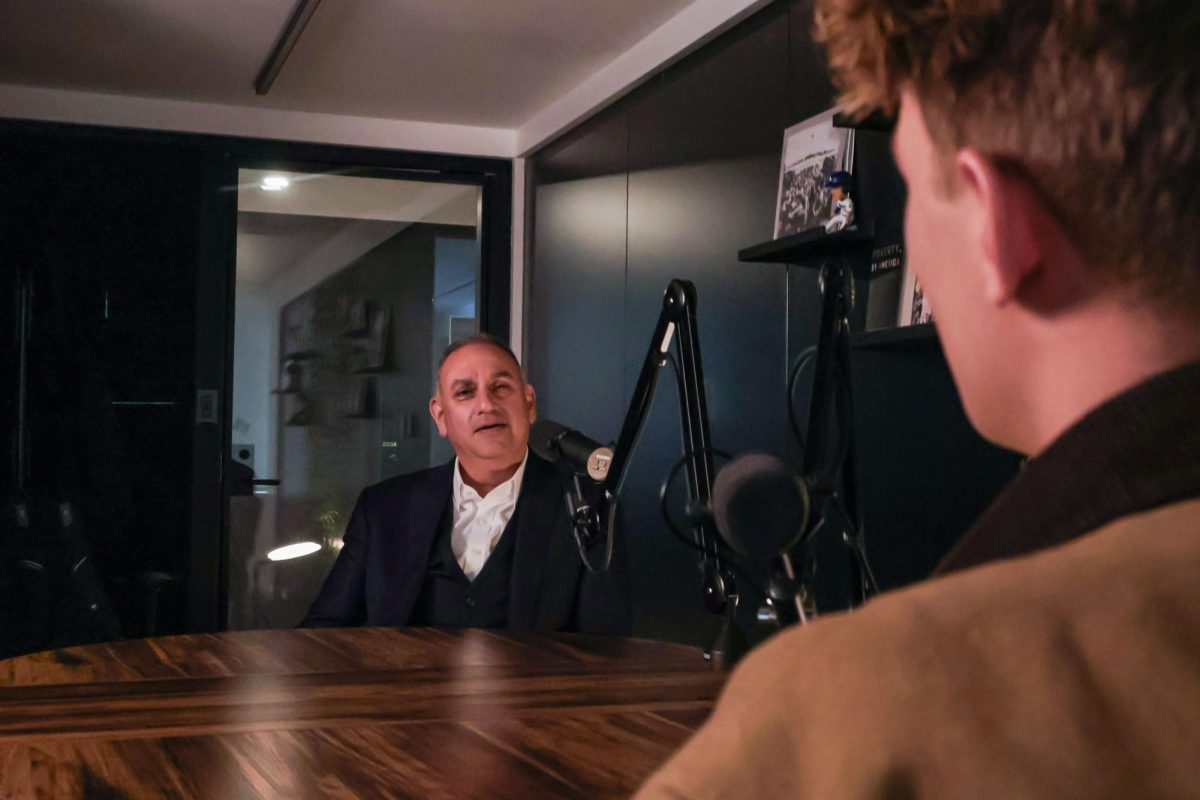Updated: June 4, 2020 at 1:43 p.m.
The Black Student Union published a letter Tuesday calling on the GW Police Department to adopt a slew of changes aimed at improving the relationship between students and officers.
The letter, addressed to GWPD Chief James Tate and Associate Vice President for Safety and Security Scott Burnotes, demands that the department levy a no-tolerance policy for officers who act on racial bias and decrease the department’s reliance on the Metropolitan Police Department. The letter comes in the wake of protests nationwide over the deaths of Breonna Taylor, George Floyd and Ahmaud Arbery, three black Americans who were killed at the hands of police in recent months.
BSU also called on officers to “significantly” decrease officers’ presence at events hosted by black students, regularly meet with student leaders and to involve black leaders and diversity and inclusion officials in GWPD cultural competency and sensitivity training.
“Our community’s goal is to improve our relationship with GWPD, and are appreciative of individual officers who have put forth the effort to do so,” the letter states. “We are now asking for structural change to enforce this goal among all officers, not merely a select few. We deserve to feel like we’re being protected on our own campus – not like the ones others are being protected from.”
Eight student organizations signed onto the letter in addition to BSU, including the African Student Association; GW Black Women’s Forum; GW National Council of Negro Women, Inc.; GW Queer and Trans People of Color Association; GW National Association for the Advancement of Colored People; GW Ethiopian-Eritrean Student Association; Students Against Imperialism; and GW Black Men’s Initiative.
Burnotes, the associate vice president for safety and security, said the Division of Safety and Security responded “directly” to the Black Student Union Wednesday and plans to meet with BSU representatives to hear their concerns and recommendations for the division. He said the division wants to work with the BSU, Student Association and other student organizations to “fundamentally” improve the relationship between GWPD and the GW community.
“We acknowledge that there is room for an improved relationship and are excited about the opportunity to have this discussion,” Burnotes said in an email.
Tate, the chief of GWPD, sent an email to the department Friday saying he was “angered and disgusted” by the killing of George Floyd. Current GWPD policy states that officers “should” intervene in and report incidents of excessive force, but Tate said he has directed the department to change the word “should” to “must.”
He added that he will attend GWPD roll calls next week to answer officers’ questions.
“It is an honor and privilege to wear the badge and protect our public, but it comes with a very high level of responsibility,” Tate said in the email. “Once we take anyone into custody, their safety is in our hands. We must treat them with dignity and respect. I will not accept anything less and neither should you.”
The letter also rejects a Hatchet editorial board piece last year recommending that GWPD hire armed officers, saying the action would further erode trust between students and officers and endanger students of color.
“We believe there are methods of de-escalation and safety enforcement that do not require the use of weapons,” the letter states.
Peyton Wilson, BSU’s executive vice president, said the organization is “grateful” for Tate’s efforts in supporting the black community and speaking with student leaders of groups like the Black Men’s Initiative. She said fostering long-lasting cultural changes within GWPD is “imperative.”
“While we have meeting after meeting with leadership, there are officers turning around and perpetuating the very culture we’re trying to change,” Wilson said in an email. “Black students, at a University they are paying for, should trust and have a relationship with campus police.”
She added that cultivating a culture of accountability with consequences for officers who engage in intolerant behavior will contribute to building a foundation to “get us to where we need to go.”
“But most importantly, we need the University to implement an enforceable no-tolerance policy for acts of violence and racial bias,” she said. “Too many black students can recall negative encounters they’ve had with GWPD that other students will never experience.”
D.C.-area BSUs also published a letter Friday calling on Mayor Muriel Bowser and MPD Chief Peter Newsham to implement measures like reducing youth arrests by 90 percent aimed at addressing police brutality.


